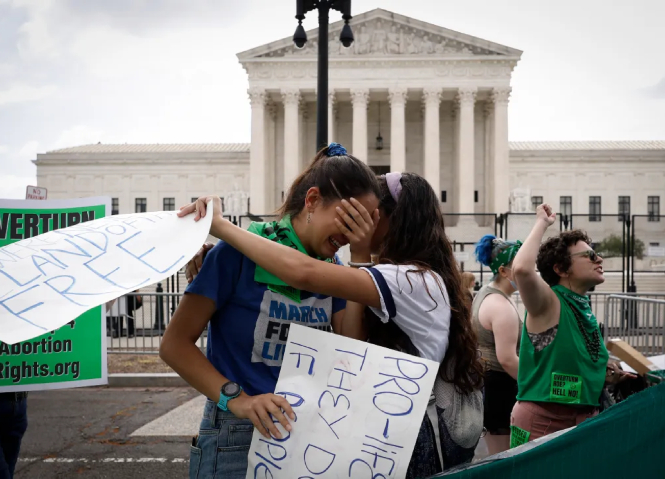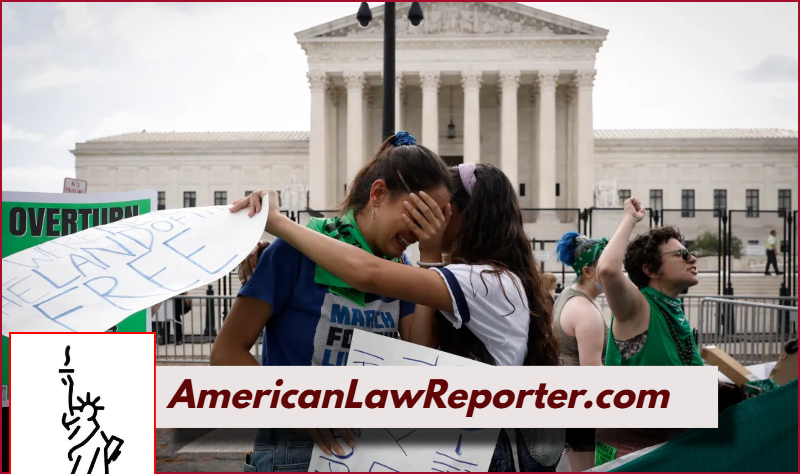In a landmark ruling that reshaped American constitutional law, the U.S. Supreme Court decided Dobbs v. Jackson Women’s Health Organization (2022), effectively overturning Roe v. Wade (1973).
The Dobbs decision eliminated the federal constitutional right to abortion, returning the authority to regulate abortion laws to individual states.
This ruling has sparked significant legal, political, and social debates, making it one of the most consequential Supreme Court decisions in modern U.S. history.
Background and Legal Context
The case arose from a Mississippi law—the Gestational Age Act—that prohibited abortions after 15 weeks of pregnancy, with exceptions only for medical emergencies and severe fetal abnormalities.
Jackson Women’s Health Organization, the last abortion clinic in Mississippi, challenged the law, arguing that it was unconstitutional under Roe v. Wade and Planned Parenthood v. Casey (1992), both of which recognized a constitutional right to abortion before fetal viability (typically around 24 weeks).
In Roe v. Wade, the Supreme Court established that the constitutional right to privacy, derived from the Due Process Clause of the Fourteenth Amendment, included a woman’s right to terminate a pregnancy. Planned Parenthood v. Casey later reaffirmed Roe but modified the standard, replacing the trimester framework with the “undue burden” test, which prevented states from imposing significant obstacles on a woman’s right to choose abortion before viability.
The Supreme Court’s Ruling in Dobbs
On June 24, 2022, the Supreme Court issued its 6-3 ruling in Dobbs, with Justice Samuel Alito writing the majority opinion. The Court ruled that the Constitution does not confer a right to abortion, explicitly overturning both Roe and Casey.

The majority opinion reasoned that abortion is not “deeply rooted in this Nation’s history and tradition” and should therefore not be considered a fundamental right under the Fourteenth Amendment.
Alito’s opinion emphasized that the Court had overstepped in Roe, creating a constitutional right that was not grounded in historical precedent. By overturning Roe, the decision returned abortion policy decisions to elected state legislatures.
Chief Justice John Roberts concurred in the judgment but argued for a narrower ruling that would have upheld the Mississippi law without entirely overruling Roe.
Dissenting Opinion and Legal Criticism
Justices Stephen Breyer, Sonia Sotomayor, and Elena Kagan jointly dissented, arguing that the ruling disregarded the precedent set by Roe and Casey, jeopardizing the principle of stare decisis (respect for precedent).
The dissent warned that the decision undermined personal autonomy, potentially paving the way for challenges to other substantive due process rights, such as contraception and same-sex marriage.
Legal scholars and advocates have pointed out that Dobbs represents a significant shift in the Court’s approach to individual rights and state power. The ruling has raised concerns that other Supreme Court decisions based on the same constitutional principles, including Griswold v. Connecticut (1965) and Obergefell v. Hodges (2015), could be revisited in the future.
State-Level Implications
Since Dobbs, states have enacted a wide range of abortion laws, reflecting the divided national landscape on reproductive rights. Some states, such as Texas and Oklahoma, have implemented near-total bans on abortion, while others, like California and New York, have expanded abortion protections.
Legal battles over state restrictions have surged, with numerous cases challenging abortion bans and access to reproductive healthcare playing out in courts nationwide.
Additionally, the ruling has influenced political discourse, with abortion becoming a key issue in elections and legislative debates. Many states have proposed or passed laws protecting or restricting abortion rights, reinforcing the regional disparities in reproductive healthcare access.
The Dobbs decision marks a historic turning point in American law, fundamentally altering the landscape of reproductive rights. By overturning Roe v. Wade, the ruling has reshaped state authority, judicial precedent, and individual rights.

